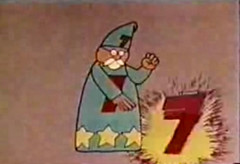Word or non-word
Let us begin with the Last Word, the self-presencing logos at the end of the red string, the simulacra-smashing original of intelligibility, the post horn-unmuting samizdat from the referent itself, the preserver of forms. I am referring, of course, to the Newsweek column, The Last Word, written this week by Anna Quindlen, who in reviewing Christo and Jean-Claude’s “The Gates” (it is a glowing review) comes close to saying something important about art, and whose last word, joking aside, is really something more like a grateful and hopeful non-word than a final presence. “The Gates” is neat, Quindlen suggests, because it signifies in a radically different fashion from other prominent public symbols that are presently circulating in American folk culture:
Now, there is something tyrannical about avant-garde art, too. The militant austerity of its command, “Have an experience, unspecified which,” the enforced dislocation, the denial of absorption into preexisting meaning—all this can feel like just another way of getting bossed around, even if it’s your own agency that you’re supposedly being returned to. I’m sure many people got little but the negative buzz of alienation effects off of “The Gates” (though its mode of blankness is certainly more pleasant than seriously avant-garde stuff), and even more felt nothing but whatever is contained in the recitation of clichés. But there might be something in Quindlen’s suggestion that art that seeks to reopen our experience, and that encourages us to at least hope to have experiences that can meaningfully be called our own, is not simply decadent aestheticism but a political force (or non-force) whose time has come again. Pronominal art, art that intends to index nothing but the experiences of those who live with it for a time, art that trusts that even debased and stereotyped experience contains idiosyncratic phantasy of irreducible value, can return us to the point from which any revolution must begin. This point, too, I invoke obliquely, for even if the Enlightenment would wish to proceed by rational argument, its wishes might be best expressed in leaps of imagination.
When pressed about what “The Gates” meant, the creators said it meant whatever you thought it meant, which was a relief after all the highhanded symbolic tyranny that passes for meaning nowadays.All the highhanded symbolic tyranny: a useful rubric under which to consider certain contemporary acts of signification. Let us pick one example mentioned by Quindlen: the Support the Troops ribbons we see magneted to the bumpers of cars (often certain oversized cars). Do these ribbons signify tyrannically? It’s at least true that act of signification they attempt is tyrannical, and the crass moral self-indulgence implicit in this act is reason enough to feel existentially ill at the sight of such ribbons. Whether or not the sign reaches all the way to the intended sense—the undeviating patriotism and solemn respect of the vehicle’s occupants, I suppose—it is plausible that one might feel tyrannized by a sign whose deployment elevates the moral worth of its signer in proportion to its negation of the moral worth of the dangerously complacent and ungrateful beneficiaries of those who gave all (“Freedom Isn’t Free,” recall), not to mention skeptics, dissidents, etc. Anyone who didn’t buy and affix a magnet, I guess. One might speak of the emptiness of these clichéd symbols—and there is something horrifying about the way they seem to reproduce on their own—but what’s really grim about the ribbons, what their intended sense would cover over, is their oblique invocation of a very real referent, a rather uncouth one. I too will invoke it obliquely, by way of comic understatement, since I don’t think any of us know yet how to name it directly: we messed up.
Now, there is something tyrannical about avant-garde art, too. The militant austerity of its command, “Have an experience, unspecified which,” the enforced dislocation, the denial of absorption into preexisting meaning—all this can feel like just another way of getting bossed around, even if it’s your own agency that you’re supposedly being returned to. I’m sure many people got little but the negative buzz of alienation effects off of “The Gates” (though its mode of blankness is certainly more pleasant than seriously avant-garde stuff), and even more felt nothing but whatever is contained in the recitation of clichés. But there might be something in Quindlen’s suggestion that art that seeks to reopen our experience, and that encourages us to at least hope to have experiences that can meaningfully be called our own, is not simply decadent aestheticism but a political force (or non-force) whose time has come again. Pronominal art, art that intends to index nothing but the experiences of those who live with it for a time, art that trusts that even debased and stereotyped experience contains idiosyncratic phantasy of irreducible value, can return us to the point from which any revolution must begin. This point, too, I invoke obliquely, for even if the Enlightenment would wish to proceed by rational argument, its wishes might be best expressed in leaps of imagination.


0 Comments:
Post a Comment
<< Home